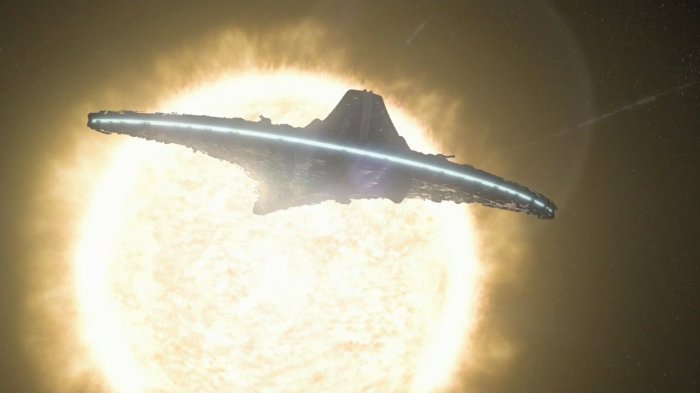WASHINGTON (AP) In an announcement that electrified the world of astronomy, scientists said Thursday that they have finally detected gravitational waves, the ripples in the fabric of space-time that Einstein predicted a century ago.
Astronomers hailed the finding as achievement of historic proportions, one that opens the door to a new way of observing the cosmos and the violent collisions that are constantly shaping it. For them, it's like turning a silent movie into a talkie because these waves are the soundtrack of the universe.
"Until this moment, we had our eyes on the sky and we couldn't hear the music," said Columbia University astrophysicist Szabolcs Marka, a member of the discovery team. "The skies will never be the same."
An all-star international team of astrophysicists used a newly upgraded and excruciatingly sensitive $1.1 billion set of twin instruments known as the Laser Interferometer Gravitational-wave Observatory, or LIGO, to detect a gravitational wave generated by the collision of two black holes 1.3 billion light-years from Earth.
To make sense of the raw data, the scientists converted the wave into sound. At a news conference, they played a recording of what they called a "chirp" the signal they heard on Sept. 14. It was barely perceptible even when enhanced.
Some physicists said the finding is as big a deal as the 2012 discovery of the subatomic Higgs boson, sometimes called the "God particle." Some said this is bigger.
"It's really comparable only to Galileo taking up the telescope and looking at the planets," said Penn State physics theorist Abhay Ashtekar, who wasn't part of the discovery team. "Our understanding of the heavens changed dramatically."
Gravitational waves, first theorized by Albert Einstein in 1916 as part of his theory of general relativity, are extraordinarily faint ripples in space-time, the hard-to-fathom fourth dimension that combines time with the familiar up, down, left and right. When massive objects like black holes or neutron stars collide, they send gravitational waves across the universe, stretching space-time or causing it to bunch up like a fishing net.
Scientists found indirect proof of the existence of gravitational waves in the 1970s computations that showed they ever so slightly changed the orbits of two colliding stars and the work was honored as part of the 1993 Nobel Prize in physics. But Thursday's announcement was a direct detection of a gravitational wave.
And that's considered a big difference.
"It's one thing to know soundwaves exist, but it's another to actually hear Beethoven's Fifth Symphony," said Marc Kamionkowsi, a physicist at Johns Hopkins University who wasn't part of the discovery team. "In this case we're actually getting to hear black holes merging."
Gravitational waves are the "soundtrack of the universe," said team member Chad Hanna of Pennsylvania State University.
Detecting gravitational waves is so difficult that when Einstein first theorized about them, he figured scientists would never be able to hear them. The greatest scientific mind of the 20th century later doubted himself and questioned in the 1930s whether they really do exist, but by the 1960s scientists had concluded they probably do, Ashtekar said.
In 1979, the National Science Foundation decided to give money to the California Institute of Technology and the Massachusetts Institute of Technology to come up with a way to detect the waves.
Twenty years later, they started building two LIGO detectors in Hanford, Washington, and Livingston, Louisiana, and they were turned on in 2001. But after years with no luck, scientists realized they had to build a more advanced system, which was turned on last September.
"This is truly a scientific moonshot and we did it. We landed on the moon," said David Reitze, LIGO's executive director.
The new LIGO in some frequencies is three times more sensitive than the old one and is able to detect ripples at lower frequencies that the old one couldn't. And more upgrades are planned.
Sensitivity is crucial because the stretching and squeezing of space-time by these gravitational waves is incredibly tiny. Essentially, LIGO detects waves that stretch and squeeze the entire Milky Way galaxy "by the width of your thumb," Hanna said.
Each LIGO has two giant perpendicular arms more than 2 miles long. A laser beam is split and travels both arms, bouncing off mirrors to return to the arms' intersection. Gravitational waves stretch the arms to create an incredibly tiny mismatch smaller than a subatomic particle in the beams' locations. That mismatch is what LIGO detects.
"We are fairly certain that we will find more and more signals," Marka said. "This is just a start."
https://www.yahoo.com/news/breakthrough-scientists-detect-einstein-predicted-ripples-154314697.html







